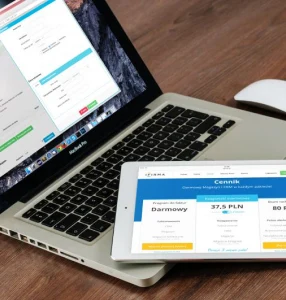Writing a successful grant proposal is a crucial skill for securing funding for various projects, whether for non-profits, research, or creative endeavors. Grant writing requires meticulous preparation, a clear understanding of the requirements, and the ability to present your project compellingly. This blog will guide you through the essential steps of writing a grant proposal, ensuring you have the best chance of obtaining the funding you need.
Understanding Grant Writing
What is Grant Writing?
Grant writing is the process of preparing and submitting a proposal to request funding from a grant-making organization. These organizations can be government bodies, private foundations, or corporations. The primary goal is to convince the funders that your project is worthy of their investment. Successful grant writing involves understanding the funder’s goals and aligning your proposal to meet those objectives.
Types of Grants
Grants come in various forms, each designed to support different types of projects. Common types of grants include:
- Government Grants: Funded by federal, state, or local governments, often for public benefit projects.
- Foundation Grants: Provided by private foundations, usually for specific causes like education, health, or the arts.
- Corporate Grants: Offered by businesses as part of their corporate social responsibility programs.
- Grants for Writers: Specifically aimed at supporting literary projects and authors.
Understanding the type of grant you are applying for helps tailor your proposal to the specific requirements and expectations of the funder.
Preparing to Write a Grant Proposal
Researching Grant Opportunities
Before writing your proposal, it’s essential to identify suitable grant opportunities. Start by researching potential funders that align with your project’s goals. Use online databases, grant writing directories, and resources like the Foundation Center or Grants.gov. Additionally, tools like AI for grant writing can help streamline the search process, making it easier to find matching grants.
Understanding Grant Requirements
Each grant has specific requirements and criteria that must be met. Carefully read the guidelines provided by the funder to understand what they are looking for. Key components often include a project description, budget, and evidence of need. Avoid common pitfalls like ignoring submission deadlines or failing to provide required documentation.
Writing a Winning Grant Proposal
Structuring Your Proposal
A well-structured proposal includes several essential sections:
- Cover Letter: Introduce your organization and summarize your project.
- Executive Summary: Briefly describe the project, objectives, and the amount of funding requested.
- Statement of Need: Explain the problem your project addresses and why it’s important.
- Project Description: Provide detailed information on how the project will be implemented.
- Budget: Outline the financial aspects, including a detailed budget and justification for each expense.
- Evaluation Plan: Describe how the project’s success will be measured.
Read more: Grant Writing Advice
Crafting a Compelling Narrative
The narrative of your proposal should tell a compelling story. Highlight the significance of your project and how it aligns with the funder’s mission. Use clear, concise language and support your claims with data and evidence. Show the potential impact of your project and why it deserves funding.
Budgeting and Financials
Creating a detailed and realistic budget is a critical component of your grant proposal. Ensure that your budget aligns with your project description and justifies each cost. Include both direct costs (expenses directly related to the project) and indirect costs (overhead expenses). Demonstrating financial transparency and accountability can increase your credibility with funders.
Finalizing and Submitting Your Proposal
Reviewing and Editing
Before submitting your proposal, review it thoroughly. Proofread for any grammatical errors and ensure clarity in your writing. Consider getting feedback from colleagues or a professional grant writer. A well-polished proposal reflects your organization’s professionalism and dedication.
Submission Guidelines
Follow the funder’s submission process meticulously. Ensure all required documents are included and formatted correctly. Pay attention to submission deadlines and any specific instructions provided by the funder. Submitting a complete and well-organized proposal demonstrates your respect for the funder’s guidelines.
Conclusion
Writing a grant proposal can be a complex process, but with careful preparation and attention to detail, you can increase your chances of success. By following the outlined steps—researching opportunities, understanding requirements, structuring your proposal, crafting a compelling narrative, and finalizing your submission—you can present a strong case for your project.
Contact us for professional grant writing assistance to maximize your chances of success. Our experts are here to help you navigate the grant writing process and secure the funding you need.






